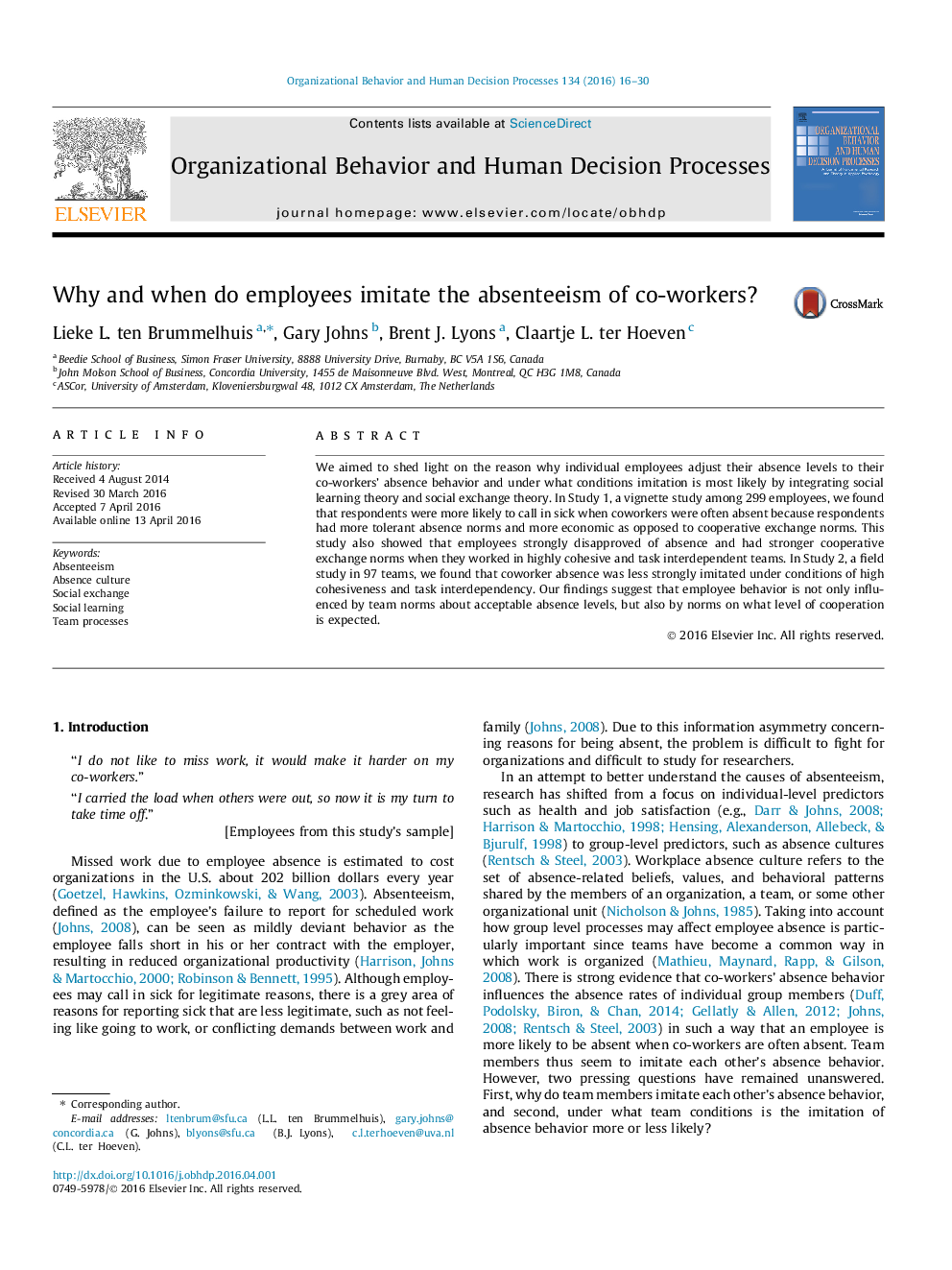| کد مقاله | کد نشریه | سال انتشار | مقاله انگلیسی | نسخه تمام متن |
|---|---|---|---|---|
| 888483 | 1471847 | 2016 | 15 صفحه PDF | دانلود رایگان |
• This study aims to examine the reasons employees have to imitate the absence behavior of co-workers.
• We also aimed to study if imitation of absenteeism is less likely in highly socially integrated teams.
• Study 1 shows that tolerant absence norms and economic exchange explain imitation of high absence.
• Study 2 shows that imitation was weaker in teams with high cohesion and high task interdependency.
• Our findings suggest that teams develop norms about absence levels and levels of cooperativeness.
We aimed to shed light on the reason why individual employees adjust their absence levels to their co-workers’ absence behavior and under what conditions imitation is most likely by integrating social learning theory and social exchange theory. In Study 1, a vignette study among 299 employees, we found that respondents were more likely to call in sick when coworkers were often absent because respondents had more tolerant absence norms and more economic as opposed to cooperative exchange norms. This study also showed that employees strongly disapproved of absence and had stronger cooperative exchange norms when they worked in highly cohesive and task interdependent teams. In Study 2, a field study in 97 teams, we found that coworker absence was less strongly imitated under conditions of high cohesiveness and task interdependency. Our findings suggest that employee behavior is not only influenced by team norms about acceptable absence levels, but also by norms on what level of cooperation is expected.
Journal: Organizational Behavior and Human Decision Processes - Volume 134, May 2016, Pages 16–30
